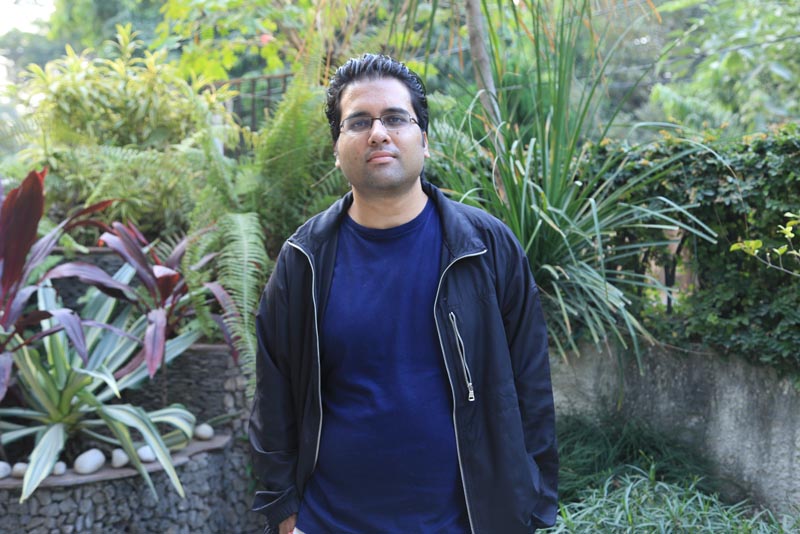Many years ago, DIPNET ran a poll on their website. It asked visitors ‘Is publishing a white, middle class ghetto?’ with the overall majority result always in favour of yes. I remember it well because the poll was on the site for about a year, and nor the site nor the poll ever seemed to go anywhere. They were stuck in another world, backward in time.
DIPNET was managed by Shelina Permalloo (yes, the Shelina from Masterchef, lover of mangoes and all that) under Booktrust. It was founded in 2005 to ‘promote the status and contribution of social groups traditionally underrepresented within publishing’. I was hopeful that in time things would change. I’d graduated years earlier, the only BME student on my publishing course and decided to do my own thing, setting up a magazine. There seemed to be lots of noise about diversity and a report In Full Colour was published which further highlighted the fact that the industry was ‘hideously white’. A number of recommendations were made. In the years that followed that were call outs for positive action traineeships and bursaries for BME candidates but there were some frankly disgusting viewpoints about these on the blog circuit. I moved on from weddings to writing. Noticing the lack of visibility of Asian writers in the mainstream I established The Asian Writer in 2007.
DIPNET may have had good intentions to begin with but seemed to make little impact as the years wore on. The poll, which still remained on their homepage reflected that nothing had changed. DIPNET wasn’t working, which may be why it was eventually re-branded as EQUIP. Diversity was trumped by equality and going forward the organisation intended ‘to promote equality across UK publishing, bookselling and agenting, by driving forward change and increasing access to opportunities within the industry.’ I sensed trouble at the helm.
Re-branding and re-structuring organisations that champion diversity is counter-intuitive. Losing the word ‘diversity’ altogether is problematic and means that organisations that are supposed to be challenged can skirt around the issue of addressing cultural diversity. I realise it takes a long time for any industry to change, longer still, when the organisation is tied up in a management and agenda crisis of its own – since Permalloo’s departure, DIPNET/Equip has changed several management hands and is now funded by The Publishers Association and Independent Publishers Guild. In 2012, EQUIP launched an equality charter. Dahlia Publishing, the small press I founded in 2010, is one of its signatories. Only a handful of organisations have signed up to the charter.
I’ve never been convinced that enough people in the industry care about challenging the lack of diversity in publishing. So it was not altogether surprising to read the findings published this week in Writing the Future: Black and Asian Writers and Publishers in the UK Market Place , but it was utterly depressing. The report, commissioned by Spread the Word and written by Danuta Kean, finds that the publishing industry is still hideously white, dominated by and large by Oxbridge graduates. There are less BME candidates in senior roles than there were ten years ago, which is a statistic worth savouring. Worst still, the researchers found it difficult to have honest conversations with BME staff working in publishing. Sue Lawther, director of Spread the Word said: ‘Many people didn’t want to speak on the record; a warning sign that something is wrong. Despite all the hard work, good intentions and a ‘signing up’ to the principles of diversity, it seems that an old mono-culture still prevails.’
The report surveyed BME novelists. 42% of respondents wrote literary fiction. Writers said they were often accused of not being ‘authentic’ when their manuscripts failed to reflect a culture that wasn’t familiar to mainstream white editors. Writers were asked to up the sari count or address issues such as gang culture that conforms to White preconceptions of BME culture. Some said they were forced to publish elsewhere. At The Asian Writer, I speak to writers all the time who complain that the publishing industry just doesn’t get it. They feel pigeon holed, expected to write a certain kind of fiction and when they don’t, they just aren’t published. They don’t make it. We need more editors from BME backgrounds who understand the needs of BME readers and the culture to overcome these issues.
The BME community is a large market, and previous research in libraries shows that people in Asian communities do read, (contrary to the myth that Asians don’t read) primarily crime fiction. But where are the published Asian crime writers? Do you know of any who are born and bred in the UK? I certainly don’t. That’s not to say they aren’t writing crime, but that they are struggling to break through the mould.
Award winning novelist, Bernadine Evaristo who was interviewed for the report said: ‘Three decades ago, few novels were published by Britain’s Black and Asian novelists, while 20 years ago, a breakthrough occurred that became a short-lived trend. For the past few years, we have seen a return to the literary invisibility of the past, concealed by a deceptive tokenism. Where are we in British fiction? I am one of the lucky few who are still published, but where are all the new BAME writers? This report is a call to action aimed at a literary industry which has the power to get our stories out there, in our own words, because our stories need and deserve to be heard too.’
The report also highlights few BME writers are invited to speak at literary festivals. Of the three big festivals – Edinburgh, Cheltenham and Hay – only 4 per cent of the 2000 plus authors who featured last year were UK Black and Asian writers of all genres, with just 1 per cent of those being UK based writers of adult fiction.
There is hope that with a new set of findings, and the PA and IPG’s funding of Equip that the industry can make lasting changes. The report makes a number of recommendations to ensure publishers and agents remain relevant in a rapidly changing, multicultural society. These include scrapping unpaid internships that often hold BME candidates back; carrying out audits to ensure cultural diversity in festival line ups and university courses; forging strategic partnerships with publications such as The Asian Writer and Wasafiri to access and mentor talented authors. If the industry is serious about tackling the lack of diversity, now is the time to take action.
We would welcome anyone in the industry looking to forge such a partnership to contact us on editor@theasianwriter.co.uk

